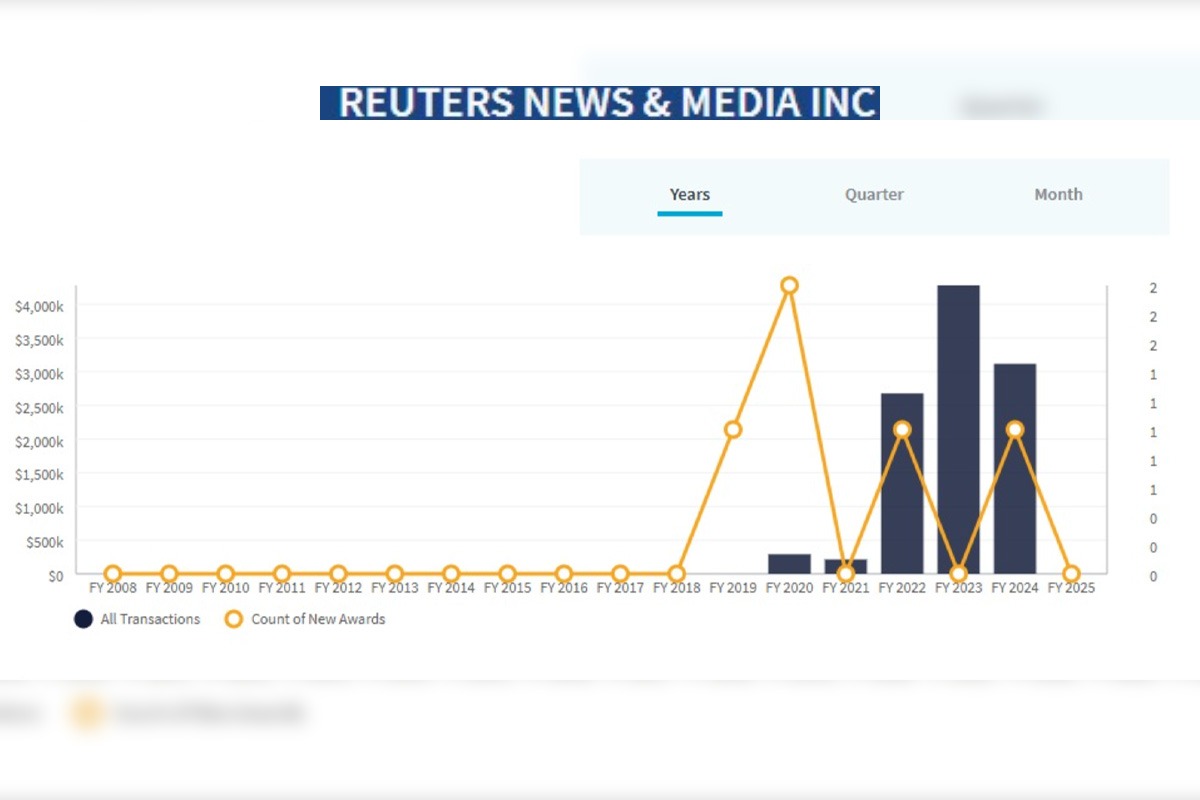NEW DELHI: Concerns are intensifying over potential conflicts of interest following revelations that the Biden administration has funneled over $300 million to Reuters through various government contracts. This raises serious questions about the integrity and independence of Reuters’ journalism, especially in light of its investigative reports targeting the Indian conglomerate Adani Group.
The financial breakdown indicates that Reuters received substantial sums across multiple contracts over the years:

2019: $60 million for media monitoring, strategic communications, and data journalism consultancy.
2020: $80 million allocated for public information dissemination and federal agency research projects.
2021: $75 million directed towards analysis and reporting in defense, health, and financial sectors.
2022: $55 million for training in data journalism and communication strategies for government agencies.
2023: $30 million for enhanced media analysis services and public awareness campaigns.
2024: $20 million designated for consultancy on strategic communications and global media reporting.
While media organizations occasionally engage in government contracts for public information initiatives, the sheer magnitude of these payments to Reuters is alarming.
This financial entanglement casts a shadow over Reuters’ journalistic objectivity, particularly concerning its aggressive coverage of the Adani Group.
ALSO READ: Press urges Joe Biden to address media during overseas trip
Reuters has published a series of investigative pieces alleging links between the Adani Group and tax havens, stock manipulation, and other financial improprieties.
These reports have significantly influenced public perception, especially given Adani’s pivotal role in India’s infrastructure development and its associations with the Indian government.
Critics argue that Reuters’ substantial financial ties to the U.S. government may have compromised its editorial independence, potentially skewing its reporting on Adani to align with broader geopolitical strategies aimed at undermining Indian economic interests.
Such actions could be interpreted as serving U.S. foreign policy objectives under the guise of investigative journalism.
ALSO READ: Opposition’s alleged ties to Adani in ₹2,080 crore kickback scandal
The lack of transparency from both the Biden administration and Reuters exacerbates these concerns. The administration has remained silent on the specifics of its contracts with Reuters, and Reuters has not addressed the potential conflict between its government contracts and its editorial stance. This opacity undermines public trust and fuels speculation about the true motivations behind Reuters’ reporting.
In an era where media credibility is paramount, Reuters’ deep financial connections with the U.S. government, coupled with its targeted investigative reporting on foreign entities like the Adani Group, suggest a troubling convergence of journalism and state influence. This situation demands immediate scrutiny to preserve the integrity of the free press and prevent the erosion of journalistic independence in favor of governmental agendas.










